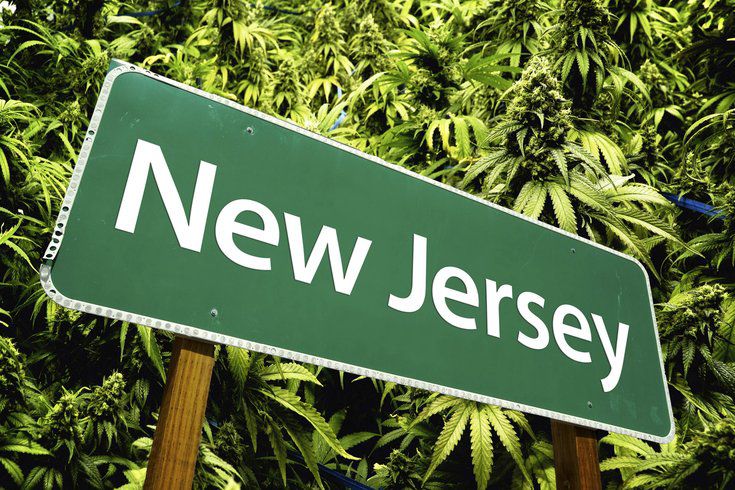A decision has not been made yet by the Hopewell Township Committee on whether to opt in or opt out of any aspect of New Jersey’s licensing for recreational cannabis.
A community forum was recently held to discuss the topic, concerns and next steps. The forum, which occurred on May 20, featured Attorney Scott Miccio, Police Director Robert Karmazin, Hopewell Valley Regional Superintendent of Schools Thomas Smith, and residents.
“I checked the voting record to see how the referendum (legalizing recreational marijuana) did here in Hopewell Township. For those who voted on the referendum, not every voter voted on the referendum, 70.7% voted in favor,” Township Committeeman Michael Ruger said.
The Township Committee can decide through an ordinance whether the governing body will opt in to allow certain types of licenses awarded by the Cannabis Regulatory Commission or to fully opt out by the Aug. 21 deadline set by the state for municipalities.
The six licenses that can be awarded are Class 1-cultivator (grower), Class 2-manufacturer (processor), Class 3-wholesaler, Class 4-distributor, Class 5-retailer and Class 6-delivery service.
“The main task that the municipality needs to figure out by Aug. 21 is do they want to opt in, meaning that they will allow any one of those classes of cannabis or all of those classes of cannabis to be stationed in the township,” said Miccio, who is from law firm Parker McCay, which serves as counsel to the township. “Or alternatively, do they want to opt out of all of them and essentially say we do not want any of those classes in the municipality.”
If municipalities do choose to opt out by the deadline there are no limitations to when a municipality can opt in.
However, if Hopewell Township were to fail to adopt an ordinance opting in or opting out by the deadline there would be consequences.
“The failure to take any action by Aug. 21 will automatically result in cultivators, manufacturers, wholesalers and distributors being permitted uses in all of the industrial zones in the township and retail would automatically be a conditional use in all of the commercial or retail zones,” Miccio added. “The township would also be prohibited from banning any of those classes for the next five years.”
If Hopewell Township were to opt in to any of the six classes the municipality can set certain regulations such as a specific zone, certain number of licensees in the township and set the hours of operations, according to Miccio’s presentation.
Speaking to where law enforcement focus will be for the township police department, Karmazin spotlighted impairment from the use of cannabis or hashish. Additionally, raising concerns on the effect cannabis or hashish will have towards mental illness and what the department faces in certain situations regarding mental health.
“Because this is so new there is no actual specificity, specifically getting into what defines the impairment. When we look at this we look at the laws for driving under the influence of alcohol and .08 a person is impaired and there you have it. We have laws and processes,” he said. “But right now there is no specific process in terms of determining if someone is impaired by marijuana or hashish. That is a primary concern for us in regular traffic motor and commercial vehicle use.”
Karmazin added that one way of enforcement is going with a drug recognition expert.
“We are fortunate we have one here in the department, but as we go forward we are going to get to a point where were are going to need more drug recognition experts to go ahead and determine when we finally come up with what will be considered the limits, specifically what would be considered impairment,” he said.
John Bunting, who is in the medical cannabis industry and a grower, during the forum focused part of his comments on the strict restrictions and testing for use of edibles (can be foods infused with cannabis).
“A concern I would like to alleviate is a concern over edibles. We have an edible product that we sell at the dispensary I work at and the testing is beyond strict,” he said. “There is only a 5% limitation over or under of what the milligrams per piece of edible can be. So if it is a five milligram edible if it is over 10 milligrams we cannot sell that edible. The key is education and regulation. If we do not have those things you end up with people consuming products that are not safe.”
In the Hopewell Valley Regional School District (HVRSD) there is a worry that recreational marijuana use will become more normalized, Smith said.
“One of the challenges we have particularly in Hopewell is our students have disposable income, time and access. That is why one of the reasons as a school district we went down road of random drug testing several years ago,” he said. “I have had preliminary conversations with members of our board regarding this and they intend to continue with random drug testing for the future. The move pre-pandemic towards random drug testing is because we had seen an uptick in students who were using in school.”
Concerns were also centered on the different forms of recreational.
“One of the things we can recognize is if a child brings alcohol into the school, chances are you are going to find it and smell it. If the child is engaged in smoking marijuana you can smell it,” Smith said. “As this changes so dramatically we have seen that there are edibles and lollipops. As a school you do not know if a student is eating just gummy bears or if they are laced with THC. It is a frightening frontier for us of not being able to have some type of idea of what is happening in our schools.”

